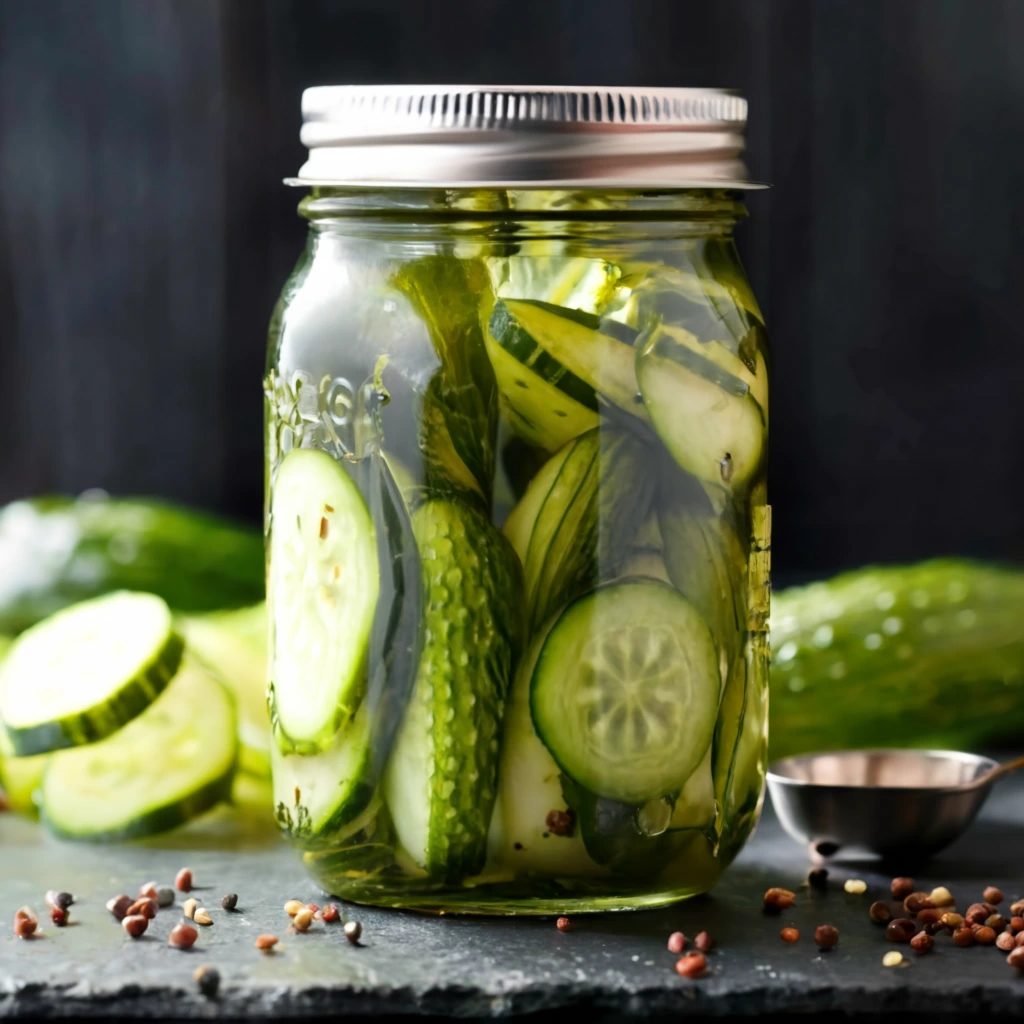What Makes a kosher dill pickle?
Before you dive into the recipe, let’s clarify what makes a pickle “kosher.” Surprisingly, it doesn’t always mean the pickles are certified kosher by religious standards. Instead, the term refers to the traditional method of using garlic and dill, hallmarks of the classic kosher dill pickle flavor. Of course, if you follow dietary laws, ensure all ingredients and equipment meet kosher requirements.
Key Elements of Kosher Dill Pickles:
- Dill: Provides the signature herbal taste.
- Garlic: Adds a pungent, tangy kick.
- Saltwater Brine: Preserves the cucumbers while enhancing flavor.
Tools and Ingredients You’ll Need
Essential Tools for Pickling
To make the process seamless, gather the following tools:
- Large mason jars or glass containers.
- Fermentation weights or a small plate to keep the cucumbers submerged.
- Measuring spoons and a mixing bowl.
Ingredient Breakdown
Here’s a quick reference table to simplify preparation:
| Ingredient | Quantity | Purpose |
| Small Cucumbers | 2 lbs | Base ingredient for pickling. |
| Fresh Dill Sprigs | 4-6 sprigs | Adds flavor and aroma. |
| Garlic Cloves | 4-6 cloves | Signature seasoning. |
| Pickling Salt | 4 tbsp | Essential for fermentation. |
| Water (Filtered) | 8 cups | Forms the base of the brine. |
| Pickling Spices | 2 tbsp | Enhances complexity of flavor. |
Step-by-Step Instructions for Authentic Kosher Dill Pickles
Step 1: Prepare Your Ingredients
- Rinse the cucumbers thoroughly to ensure all dirt and debris are removed.
- Trim the ends to prevent the enzymes from softening the pickles during fermentation.
- Peel and lightly crush the garlic cloves for a more robust flavor.
Step 2: Create the Brine
- Heat the filtered water slightly and stir in the pickling salt until dissolved.
- Allow the brine to cool completely before use; adding hot brine can damage the cucumbers’ texture.
Step 3: Pack the Jars
- Layer the cucumbers, dill sprigs, and garlic cloves inside your mason jars.
- Sprinkle the pickling spices evenly for a balanced flavor.
Step 4: Add the Brine
- Pour the cooled brine over the packed cucumbers, ensuring everything is fully submerged.
- Use fermentation weights or a clean plate to keep the cucumbers beneath the brine.
Step 5: Ferment and Store
- Seal the jars with lids. If using an airlock system, attach it now to allow gases to escape.
- Store the jars in a cool, dark place for 7-14 days, checking periodically for the desired level of tanginess.
- Once fermented, transfer the jars to the refrigerator to halt further fermentation and preserve the pickles.
Table of Contents
Tips for Perfect Kosher Dill Pickles
- Choose Fresh Cucumbers:
Opt for small, firm cucumbers to achieve a crunchy texture. - Stick to Pickling Salt:
Avoid iodized salt, as it can cloud the brine and affect fermentation. - Sterilize Your Equipment:
Cleanliness is crucial to prevent unwanted bacteria from spoiling your batch. - Be Patient:
Letting the pickles sit for at least a week ensures they develop their full flavor profile.
Common Mistakes to Avoid
Using Non-Filtered Water
Tap water often contains chlorine, which can interfere with fermentation. Always use filtered or distilled water.
Skimping on Salt
Salt isn’t just for flavor—it plays a vital role in creating an environment where beneficial bacteria thrive.
Overpacking the Jars
While it’s tempting to fit as many cucumbers as possible, overcrowding can hinder fermentation. Ensure there’s enough room for the brine to flow freely.
FAQ
How long do homemade kosher dill pickles last?
Properly refrigerated, they can last up to six months.
Can I reuse the brine for another batch?
While possible, it’s not recommended as the salt and flavor balance may not be sufficient for a second use.
What makes pickles crunchy?
Fresh cucumbers, the right brine concentration, and a controlled fermentation environment contribute to the perfect crunch.
Can I add extra ingredients like peppers or onions?
Absolutely! These can enhance the flavor without affecting the fermentation process.
Is it safe to speed up fermentation?
You can store the jars in a slightly warmer area, but be cautious—it may compromise texture and consistency.
Conclusion:
Mastering the art of pickling opens up a world of culinary creativity. This step-by-step guide empowers you to create authentic kosher dill pickles that are as delicious as they are satisfying to make. By following these instructions, you’ll not only enjoy the tangy crunch of homemade pickles but also gain the confidence to experiment with flavors.
